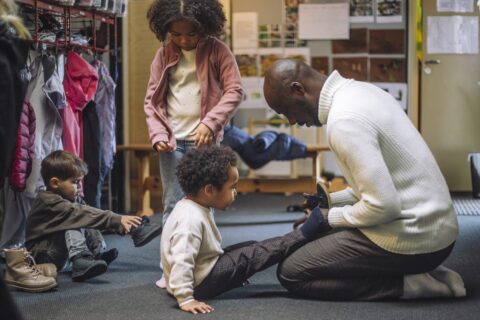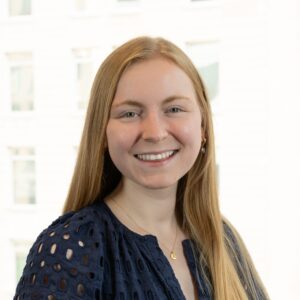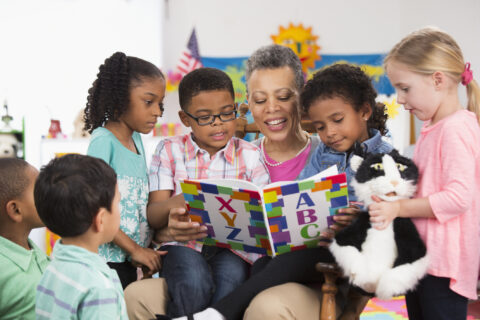Diapers are a basic necessity, yet many families across the United States struggle to afford them. According to a 2023 report by the National Diaper Bank (PDF), 47 percent of families with young children reported experiencing diaper need. This marks a sharp increase from 33 percent when the first investigation was conducted in 2010. This issue affects families across income levels, family structures, education backgrounds and employment status. By taking action on diaper need, city governments have the opportunity to make a tangible difference in the lives of families. Supporting diaper access is a strategic investment in public health, economic mobility and child development.
Diaper need can seriously impact children and families by contributing to health problems like infections and rashes, limiting access to early education programs and increasing parental stress. When families can’t afford diapers, they often must face heartbreaking choices, such as stretching diaper use or cutting back on other essentials, such as food and utilities. These challenges disrupt parents’ ability to work or attend school, deepen material hardship and hinder child development and overall family well-being.
For cities, diaper need is more than a private struggle. It is a public health and community well-being issue. Addressing diaper need supports early childhood development, strengthens workforce participation, reduces healthcare costs and promotes economic equity.
How City Governments Can Address Diaper Need
City governments can take meaningful steps to support families facing diaper need by:
1. Recognizing the Issue Publicly
Issue a proclamation for National Diaper Awareness Week, held annually in September, to raise awareness and signal the city’s commitment to family well-being.
- Rapid City, SD: Mayor Jason Salamun issued a proclamation in 2025 and partnered with Volunteers of America Northern Rockies to host a diaper drive that in the previous year collected over 20,000 diapers.
- Coconut Creek, FL: The city commission passed a proclamation acknowledging the awareness week and celebrated local organizations like the Greater Fort Lauderdale Diaper Bank while encouraging residents to donate to diaper banks.
2. Partnering with and Supporting Local Diaper Banks
Collaborate with community organizations to host diaper drives, fund distribution efforts and provide logistical support such as storage and transportation.
- Springfield, MA: The city supports Baby Bottoms Diaper Bank through partnerships with Square One and other community organizations, distributing diapers via libraries and family service centers.
3. Integrating Diaper Access into Broader Policy
Cities can include diaper need into broader anti-poverty or public health strategies that ensure long-term support.
- San Francisco, CA: The city embeds its diaper bank program within public benefit programs like CalWORKs, CalFresh and Medi-Cal to support family stability, economic security and child well-being.
4. Removing Local Sales Tax on Diapers
Cities in states that allow local taxation can exempt diapers and make them more affordable for all families.
- Denver, CO (PDF): In October 2022, Denver’s City Council implemented an ordinance that exempted all diapers from local sales tax as part of a citywide policy to support families and caregivers.
5. Tracking and Reporting Impact
Collect data on diaper distribution and family outcomes to inform future policy and efforts and demonstrate the value of city involvement.
Explore the Long-Term Impacts of Early Childhood Policy
What happens when a local government chooses to prioritize young children, their families and the early childhood workforce for years at a time? That’s the question this new toolkit answers. Explore it to get practical insights and clear next steps to begin implementing proving policy wins in your community.






